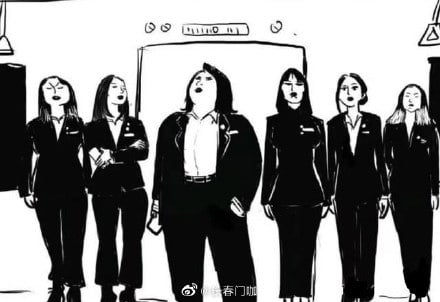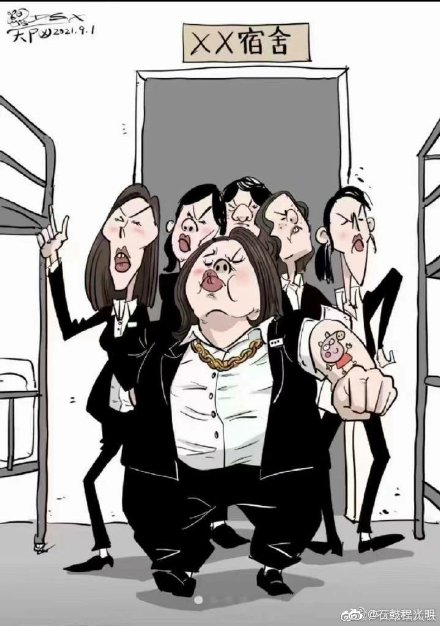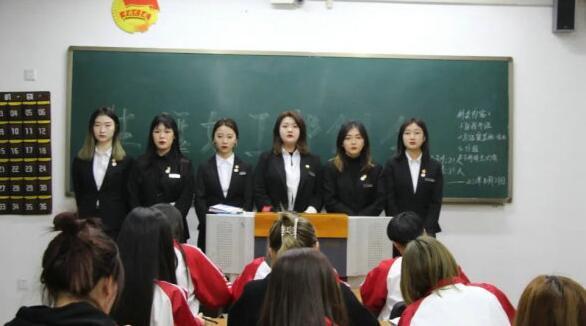Our Weibo phrase of the week is Bye Bye Biden (bài bài Bàidēng 拜拜拜登). As news of Biden dropping out of the presidential race went viral on Weibo early Monday local time, it’s time to reflect on some of the popular nicknames and phrases given to US President Joe Biden on Chinese social media.
🔹 Biden in Chinese: Bàidēng 拜登
Biden in Chinese is generally written pronounced and written as Bàidēng 拜登. Although the character 拜 (bài) means “to pay respect, to worship” and 登 (dēng) means “to ascend, to climb,” they’re used here primarily for their phonetic similarity. The characters chosen are neutral to avoid any negative implications in the official translation of Biden’s name.
Why are non-Chinese names translated into Chinese at all? With English and Chinese being vastly different languages with entirely different phonetics and scripts, most Chinese people find it difficult to pronounce a foreign name written in English. Writing foreign names in Chinese not only standardizes them but also makes pronunciation and memorization easier for Chinese speakers.
🔹 Bye Biden: Bài Bài Bàidēng 拜拜拜登
Because Biden is Bàidēng, and the Chinese for ‘bye bye’ is written as bài bài 拜拜, some netizens quickly created the wordplay “bài bài Bàidēng” 拜拜拜登 (“bye bye Biden”) upon hearing that Biden would not seek reelection. Try saying it out loud—it almost sounds like you’re stammering.
🔹 Old Joe: Lǎo Dēng Dēng 老登登
Another common farewell greeting to Biden seen online is “bài bài lǎo dēng dēng” 拜拜老登登, which sounds cute due to the repetition of sounds.
“Old Biden” or “lǎo dēng dēng” 老登登 is a common online nickname for Biden in Chinese. The reduplication of the 登 (dēng) makes it sound playful and affectionate, while the “old” prefix is commonly used when referring to someone older. It’s similar to calling someone “Old Joe” in English.
🔹 Biden Variations: 拜灯, 白等, 败蹬
Let’s look at some other ways Biden is nicknamed online:
Besides the official way of writing Biden with the 拜登 Bàidēng characters, there are also other variations:
拜灯: bài dēng
白等: bái děng
败蹬: bài dèng
These alternative ways of writing Biden’s name are not neutral. Although the first variation is not necessarily negative (using the formal Biden 拜 bài character but with ‘Light’ 灯 dēng instead of the other 登 ‘dēng’), the other two variations are usually used in more negative contexts.
In 白等 (bái děng), the first character 白 (bái) means “white,” which can evoke associations with old age due to white hair (白发). The character 等 (děng) means “to wait,” and the combination can imply being old and sluggish.
败蹬 (bài dèng) is typically used by netizens to reflect negative sentiments towards the American president. The characters separately mean 败 (bài): “to be defeated,” “to fail,” and 蹬 (dèng): “to step on,” “to kick.” This would never be used by official media and is also often used by netizens to circumvent censorship around a Biden-related topic.
🔹 Revive the Country Biden: Bài Zhènhuá 拜振华
Then there is 拜振华 Bài Zhènhuá: revive the country Biden
In recent years, Biden has come to be referred to with the Chinese nickname “Revive the Country Biden,” also translatable as ‘Thriving China Biden’. This nickname has circulated online since 2020 and matches one previously given to former President Trump, namely “Build the Country Trump” (Chuān Jiànguó 川建国).
The idea behind these humorous monikers is that both Trump and Biden are seen as benefitting China by doing a poor job in running the United States and dealing with China.
🔹 Sleepy King: Shuì wáng 睡王
Shuì wáng 睡王, Sleepy King, is another common nickname, similar to the English “Sleepy Joe.” During and after the 2020 American presidential elections, there were numerous discussions on Chinese social media about ‘Trump versus Biden.’ Many saw it as a contest between the ‘King of Knowing’ (懂王) and the ‘Sleepy King’ (睡王).
These nicknames were attributed to Trump, who frequently boasted about his unparalleled understanding of various matters, and Biden, who gained notoriety for being older and tired. Viral videos, some manipulated, showed him nodding off or seemingly disoriented. The name ‘Sleepy King’ then stuck.
🔹 Grandpa Biden: Bài Yéyé 拜爷爷
Throughout the years, Biden has also been nicknamed Bài yéyé 拜爷爷, “Grandpa Biden.” This is usually more affectionate, though it emphasizes his age—Trump is not much younger than Biden and is not nicknamed ‘Grandpa Trump.’
Another similar nickname is lǎo bái 老白, “Old White,” referring to Biden’s age and white hair. 白 (bái, white) can also be a surname in Chinese. This nickname makes it seem like Biden is an old, familiar friend.
On Weibo, many speculate that American Vice President Kamala Harris will be the new candidate for the Democrats, especially since she’s been endorsed by Biden. Many have little confidence that she can compete against Trump. Her Chinese name is Kǎmǎlā Hālǐsī 卡玛拉·哈里斯, commonly referred to as ‘Harris’ (Hālǐsī).
In light of the latest developments, some netizens jokingly write: “Bye bye Biden, Ha ha ha, Harris.” (Bài bài, Bàidēng. Hā hā hā, Hālǐsī 拜拜,拜登。 哈哈哈,哈里斯). With a new Democratic candidate entering the presidential race, we can expect a fresh batch of creative nicknames to join the mix on Chinese social media.
Want to read more? Also read: Why Trump has Two Different Names in Chinese.
By Manya Koetse
Spotted a mistake or want to add something? Please let us know in comments below or email us. First-time commenters, please be patient – we will have to manually approve your comment before it appears.
©2024 Whatsonweibo. All rights reserved. Do not reproduce our content without permission – you can contact us at info@whatsonweibo.com.


 China Insight3 months ago
China Insight3 months ago
 China Music4 months ago
China Music4 months ago
 China Digital10 months ago
China Digital10 months ago
 China Arts & Entertainment12 months ago
China Arts & Entertainment12 months ago








































